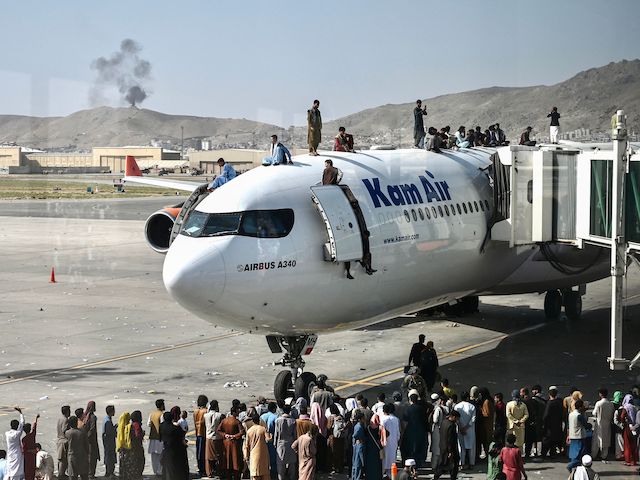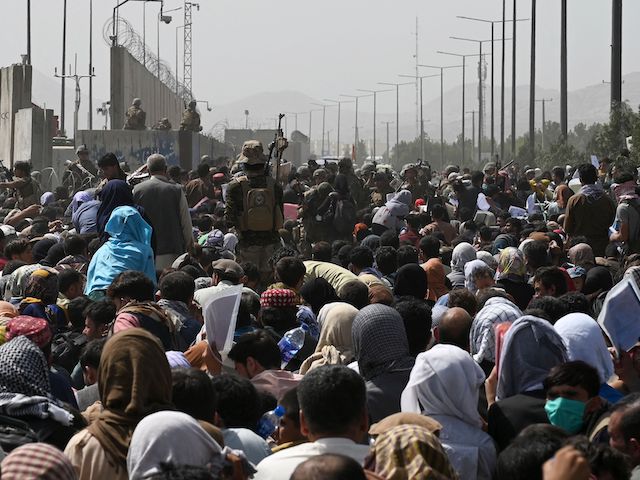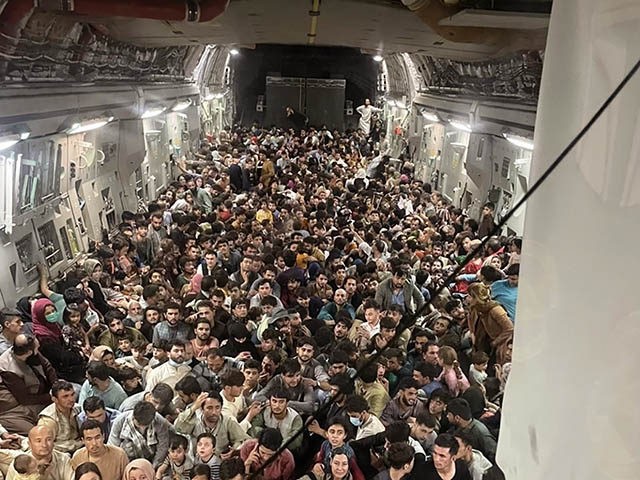Americans watched in horror this month as the Afghan government crumbled and U.S. personnel were forced to evacuate our embassy in Kabul – events that rank among the most significant foreign policy disasters in American history. Yet even as chaos envelops Afghanistan and President Biden scrambles to beat a hasty withdrawal amid Taliban threats, we must take care to ensure that a second catastrophe does not unfold here in our own country as tens and perhaps hundreds of thousands of Afghan nationals head for the United States.
I, like the vast majority of Americans, support the admission and resettlement of Afghans who directly assisted with sensitive U.S. military and diplomatic operations in the country, such as interpreters and translators who served alongside American soldiers. But the reality of the situation is that not everyone overwhelming Hamid Karzai International Airport looking to pile on to a C-17 transport plane fits into that category. As of Tuesday, President Biden said that more than 70,000 people had been evacuated from the country, but the administration has yet to clarify exactly how many helped American forces and how many are simply Afghan nationals looking to get out of the country in a final mad dash.

Afghan people climb atop a plane as they wait at the Kabul airport in Kabul on August 16, 2021, as thousands of people mobbed the city’s airport trying to flee the country. (WAKIL KOHSAR/AFP via Getty Images)
The White House has also been short on details regarding how and where evacuees are being vetted. Politico quoted an anonymous administration official last week who claimed that screening will take place in Qatar and Kuwait; but Pentagon spokesman John Kirby appeared to contradict that claim, calling the situation “fast developing” and saying that arrivals would continue their “processing” at sites in Texas, Virginia, and Wisconsin. So which is it?
Making matters worse, the rapid collapse of the Afghan government and closure of our embassy have made careful vetting of the massive number of Afghans fleeing the country even more difficult. Some of those seeking to get out are arriving at the Kabul airport without identity documents, having destroyed them to avoid detection at Taliban checkpoints. But it is not difficult to imagine others with more nefarious aims utilizing the same strategy in the hopes of hopping a flight out.

Afghans gather on a roadside near the military part of the airport in Kabul on August 20, 2021, hoping to flee from the country after the Taliban’s military takeover of Afghanistan. (WAKIL KOHSAR/AFP via Getty Images)
American officials will also have a hard time validating the claims of those who do present documents, say, showing their prior service as an Afghan policeman or ministry employee. With the Afghan government gone and the closure of our embassy – where computers and sensitive information reportedly had to be destroyed in the face of the Taliban advance – confirming the authenticity of such documents will not be easy to do. After all, U.S. immigration officers can’t exactly call up the Taliban and ask them to verify someone’s past employment.
This is not hyperbole. Even when our embassy in Kabul was open and Afghanistan’s government was functioning, the “Special Immigrant Visa” (SIV) program was plagued by fraud. In the first three months of this year, for example, a whopping 84 percent of Afghan SIV applications were rejected. No longer having reliable partners in Kabul, we face undeniable gaps in the efficacy of the screening process.
While we can, for example, run the fingerprints of those seeking SIV status (as well as the larger universe of intending migrants) through Interpol and U.S. terrorist databases, those who do not trigger “hits” in those systems could slip through. Complicating matters, the sheer volume of those seeking entry already appears to be challenging our vetting capabilities, prompting U.S. Citizenship and Immigration Services to ask for “volunteers” to head to U.S. military bases to process and judge applications. This situation poses real risks, and we’ve already seen a cautionary tale out of France, where officials arrested an evacuee with possible terrorist ties this week after he admitted previously manning a Taliban checkpoint.
It is also important to remember that getting Afghans out of the country doesn’t necessarily mean that they must be resettled here. Neighboring countries like Pakistan or Tajikistan may be a better fit for many Afghans, where cultural integration may be easier and where they will be closer and more able to return to their home country if and when conditions stabilize – as many have in the wake of previous upheavals in Afghanistan.
I voted for legislation to expand, improve, and accelerate the processing of visas for the translators and linguists who assisted in the 20-year U.S.-led war effort; and my office continues to work to help get them and U.S. citizens stranded in the country out. But we have an obligation to make sure Afghans looking to come to the United States are who they say they are and that their stories check out before – not after – they arrive in our country. That is not a radical or “xenophobic” proposition; it’s just common-sense and vital to our national security.
Bringing hundreds of thousands of foreigners from a terrorist hotbed into the U.S. now and asking questions later is simply reckless and irresponsible.
The stakes are high. We must get this right.
U.S. Rep. Tom Tiffany represents Wisconsin’s 7th Congressional district and is a member of the House Judiciary Committee.

COMMENTS
Please let us know if you're having issues with commenting.